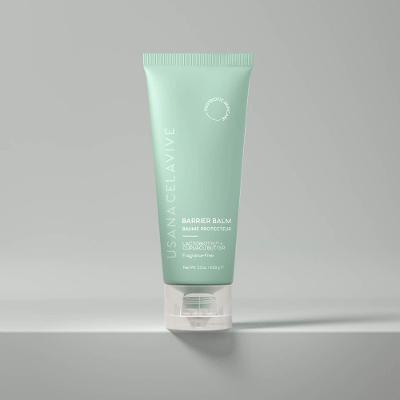Blog
5 Fast Ways To Keep Skin Glowing
Being the largest organ of the body, skin is the ultimate multitasker. It acts as a first line of defence against harmful factors that can be severely damaging to the organs – so when we say skin health is important, we can’t stress this enough.
Our Skin acts like it has its own little habitat. It helps regulate body temperature, prevents moisture loss, maintains fluid balance, absorbs shocks, releases toxins from the body and acts as an effective barrier.
With these many functions, you must nurture your skin to its fullest potential. Let’s explore five ways of improving skin health.
#1 – Prioritize Hydration for Building Resilience
Let’s start with Water, it’s not often we drink ‘pure’ water these days, but it is a life elixir, and has an important part to play in skin healthiness.
It saddens me to think that the average person in North America drinks 3.9 glasses a day. Most drinking is being consumed at home, from the tap and a 1/3 of water consumption is being consumed outside the house. What this comes down to, aside from skin health, is we need to consume more water.
Water, being a vital player in our body’s ecosystem, the skin needs to be juiced up to retain its elasticity, softness, and, in general, function, but it’s not just skin, it’s every one of the trillions of cells that make up our unique bodies, rely on water.
Let’s talk about dehydration. Dehydration can easily compromise the structure of the skin barrier, resulting in dryness and inflammation and even leading to premature aging, in some cases.
So how do we know we are dehydrated? Well, it might seem obvious but we only know when our bodies tell us we are thirsty, but it’s a little too late at this point, optimal hydration is already on the back foot!
According to the American Journal of Clinical Dermatology, hydration is the main determinant of good skin health. Proper hydration and the delivery of nutrients to the skin cells, therefore, can be achieved by taking enough water and taking a rich diet.
To optimize hydration levels, aim to consume at least eight glasses of water daily (and not the American average of 3.9 glasses)
Include in your diet – water-rich foods:
- Watermelon (or any of the Melon family)
- Strawberries
- Beetroot
- Pineapple (fresh)
- Peaches (fresh)
- Oranges
- Cucumber
- Bell peppers
- Broccoli
- Celery
Not only are you helping with your overall water intake but you are also ensuring your body and its cells are receiving the required amount of nutrients.
Dr Jennifer Lee, USANA’s Dermatologist says ‘The phytochemicals and co-factors within fruits can help with improving skin tone’. So tuck it into the fruit.
At the end of the day, you need to know that water isn’t your only source of hydration or minerals. The intake of a balanced diet will also help you consume other vitamins and antioxidants that are important for the skin and the body.
#2 – Establish a Scientifically-Supported Skin Health Routine
Thankfully, skincare is a helpful trend. With a wealth of knowledge now available, more and more people are prioritizing taking care of their skin the right way.
Your skincare shouldn’t only include piling on serums and moisturizers but your focus should also be on daily hygiene, striking a balance, and careful research on products that actually suit your skin type.
At the very basic – have these steps locked into your routine – cleanse-tone-moisturize-SPF. Cleansing effectively removes dirt, oil, and impurities; toning helps to condition the skin back to its pH balance and prepares it for follow-up treatments.
Here are some scientifically backed star ingredients: Hyaluronic acid, Vitamin C, niacinamide, and retinoids are reported to combat poor skin texture, inflammation, and signs of aging. Such ingredients work together to improve the skin barrier functioning and synthesize collagen, and skin revitalization.
The saturated skincare market could be confusing, especially when you are just starting out. Here are top picks with effective results, great ingredients, and targeting a variety of concerns.
Keep in mind to always use skincare products with formulations correct for your skin type and concerns. Always prefer products with clinically tested ingredients over those that have harsh chemical composition or irritants, which can do more harm than good for your skin.
Also, remember that Rome was not built in a day and neither will you see results if you are not consistent with your skincare routine and ingredients. It’s not all about botox right?!
#3 – Sunscreen Every 2 Hours
I know I know…you hear it from your Mom, your Dad, from blog articles on skin health and now with climate change and the sun harsher than ever, you need to know that sun protection has become an unskippable step in any skincare routine.
A good one avoids the dangers that might be caused by ultraviolet (UV) light, including photoaging, hyperpigmentation, and the possibility of developing skin cancer.
Findings published in the Journal of the American Academy of Dermatology confirm that sunscreen is a critical product designed to protect the skin against UV-induced effects. Broad-spectrum sunscreens safeguard the skin from UVA and UVB rays, hence reducing the tendency to sunburn, premature signs of aging, and skin cancer.
Incorporating sunscreen into your daily routine is vital, regardless of weather conditions or outdoor activities, effective skin health care needs to be a priority.
According to the Dutton Institute effects of ozone depletion can cause irritations of the skin, including skin cancer, so as Baz Luhmann says ‘Everyone’s Free To Wear Sunscreen’.
Choose a sunscreen with a minimum SPF of 30 and apply it generously to all exposed areas of the skin. It is also recommended that if you are out and about, it should be reapplied every two hours. When you can, step out with protective coverings, using sunshades, and hats to protect from the sun.
#4 – Nourish Your Skin from Within with a Balanced Diet
While you can get the most expensive products and establish a great skincare routine, if your gut health is suffering, your skin truly won’t be at its best.
Your diet and external products/supplements work as a team to boost skin health. It improves the skin’s resiliency and quality therefore a diet rich in nutrients, vitamins, minerals, antioxidants, and essential fatty acids, which are your USANA Biomega Fish Oils, would be amazing and contribute significantly toward good health from the inside to the outside.
USANA’s New Featured Skincare Barrier Product

USANA Postbiotic Skincare Balm
Important nutrients include Vitamin C, Vitamin E, and beta-carotene, and omega-3 fatty acids fight against inflammation and prevent the depletion of collagen which is crucial for tissue repair, cellular migration, and immune response.
Such nutrients support the skin’s structure and contribute greatly to a healthy, improved, radiant complexion.
We get this next bit of information from every bit of health forum online, and yes, I’ll repeat it here also, but, a well-balanced diet that includes a wide range of fruits, vegetables, lean proteins, and healthy fats is always preferable for obtaining all the necessary nutrients that contribute to healthy skin.
There, said it.
Also, make sure you switch fried snacks with produce full of antioxidative properties: from berries, citrus fruits, and green leafy to nuts.
Some of the omega-3-rich foods that you can add to your diet are fish, flaxseeds, and walnuts. It’s a lot easier if you mix ground LSA (Linseed, Sunflower and Almonds) in with your Wholegrain Oats, smash in a little Nut Milk and free-radical neutralizing organic blueberries for one heck of a nutritiously rich, skin-health breakfast.
#5 – Never Underestimate the Power of Quality Sleep for Skin
There’s a reason why the medical fraternity is always harping on how important sleep is. A good night’s sleep works wonders for your overall skin health and mental health.
While you are sleeping, your body and skin are repairing and restoring cells that directly affect your appearance. Other important body processes that take place include cell turnover, collagen synthesis, and toxin elimination, which all work to maintain the integrity and general life of the skin.
This is why on the nights when you sleep late or don’t get enough sleep, you may end up with prominent dark circles, crappy mood, and sullen skin.
Too many people hide these imperfections with make-sup, but little know that to support better skin health could mean, drinking plenty of filtered water, and getting 8 plus hours a night.
The link between sleep deprivation and poor skin health was highlighted in a study published by the Journal of Clinical Sleep Medicine. The study showed accelerated signs of aging, weak skin barrier function, and poor skin healing ability in people who were not getting enough quality sleep.
Did you know, that one tiny square inch of skin, consists of over 19 million skin cells and you shed over 30,000 skin cells in one minute? Our body is crazy cool!
Here how to build an effective sleep routine:
- To optimize your skin’s health, make and stick to a sleeping routine that helps you fall asleep faster and deeper. USANA Mineral Calm could help
- Always aim for 7-9 hours of uninterrupted sleep per night.
- Limit the use of electronic devices and caffeinated drinks, including drinking these after 12pm.
- Avoid adrenaline-pumping activities that will keep you awake for hours
- Have your dinner at least 2-4 hours before you are planning to sleep.
- Try and have your main meals at Breakfast and Lunch, saving Dinners as a lighter option.
Everybody’s skin reactivity and requirements are different. Making a skincare regimen, sleeping routine, and a healthy diet is also dependent on your daily schedule, your body’s system, and your age.
We would always recommend getting a healthcare professional’s advice before starting.
Remember that consistency is key to achieving and maintaining optimal skin health. Incorporate these science-backed strategies into your daily routine, and observe the transformative effects on your skin over time!
Invest today and reap a lifetime of radiant skin, youthful complexion, and confidence.







